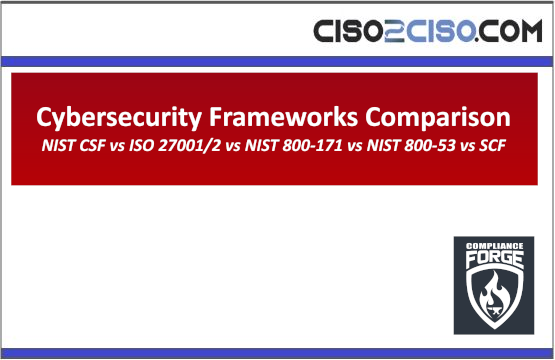NIST CSF vs ISO 27001/2 vs NIST 800-171 vs NIST 800-53 vs SCF
The Secure Controls Framework (SCF) is designed to provide a comprehensive catalog of cybersecurity and privacy control guidance that addresses the strategic, operational, and tactical needs of organizations, regardless of their size, industry, or geographical location. The SCF serves as a “metaframework,” encompassing a wide range of existing frameworks, including NIST Cybersecurity Framework (CSF), ISO 27002, NIST 800-53, and over 100 other laws and regulations. This allows IT, cybersecurity, legal, and project teams within organizations to communicate effectively about controls and requirements.
The SCF is particularly beneficial for organizations looking to establish an Information Security Management System (ISMS), as it outlines the necessary controls and best practices for building a robust IT security program. ISO 27002, which has been widely adopted by multinational corporations, provides detailed best practices for implementing an ISMS but cannot be certified against directly; certification is only available for ISO 27001. While ISO frameworks are less complex than NIST 800-53, they do come with a cost for access to their publications.
ISO 27001 and ISO 27002 are part of the ISO 27000 series, which underwent rebranding in 2007. ISO 27002 supports the implementation of ISO 27001, and it is essential to note that organizations cannot certify against ISO 27002 alone. The SCF and other frameworks like NIST 800-53 are tailored to meet the needs of various organizations, including small to medium-sized businesses, and have been adapted to comply with specific regulations such as HIPAA and FINRA.
In summary, the SCF provides a flexible and comprehensive approach to cybersecurity and privacy controls, enabling organizations to align their security practices with industry standards and regulatory requirements while facilitating clear communication among stakeholders.
Views: 28




















































